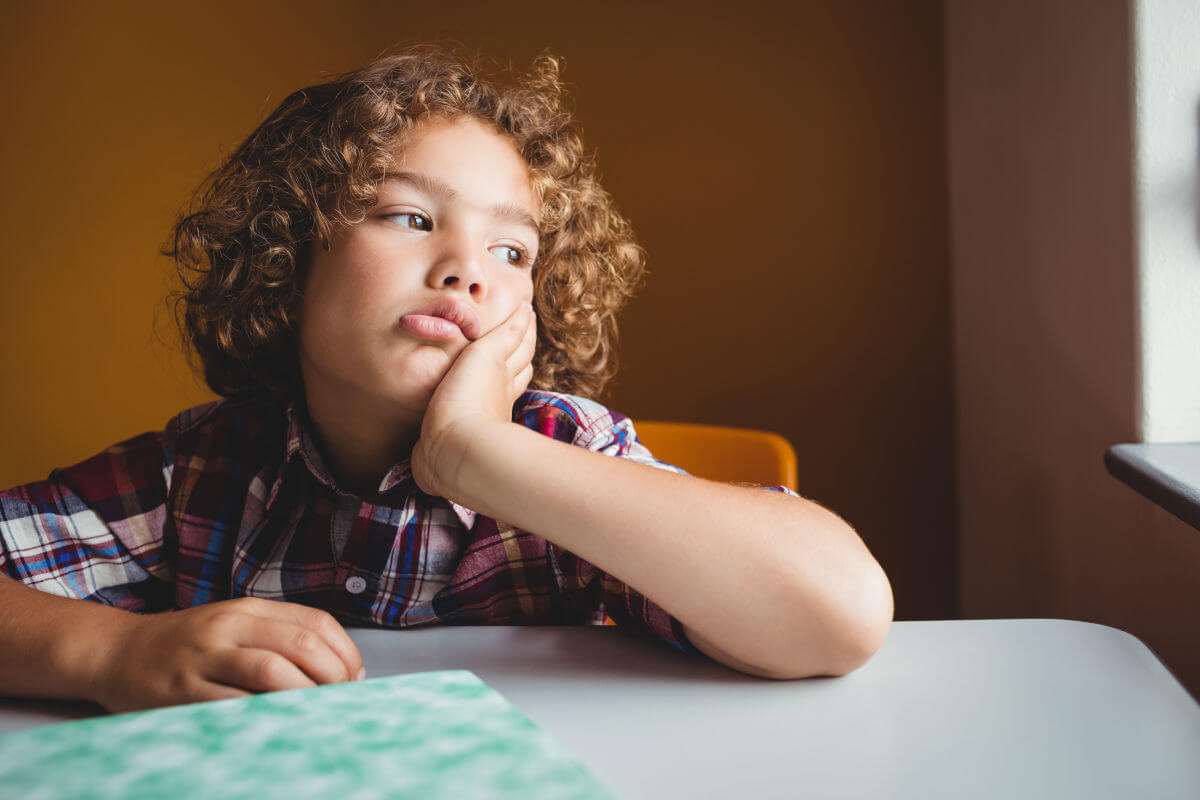Kids Who Can’t Concentrate
You’ve just done the school run, asked the obligatory “how was your day?” and in return received the equally predictable “OK….”. Then you notice an email from your child’s teacher and you get the feeling things haven’t been OK that day. Your little cherub has been acting up, isn’t focused in class and seems generally uninterested in the curriculum. Oh oh. Do you have a problem on your hands? Well, don’t panic just yet because chances are that lack of focus you’re seeing in your child is merely the result of them being, well,…..a child.
Understanding exactly why a child finds it difficult to concentrate at school or at home can be a complex pursuit. Physiological factors concerning brain development plus an array of cultural or social factors can all determine a child’s ‘focus factor’. On the physiological side, it’s completely normal for kids to lack the ability to concentrate for extended periods simply because their brains haven’t yet developed the necessary cognitive skills to cut out minute by minute distractions. It’s suggested this is the process of children outgrowing their ‘primitive reflexes’, fight or flight behaviours they were born with that cause them to almost uncontrollably give attention to whatever or whoever is in their immediate surroundings. They want to know what’s happening over here or who’s talking over there because it’s safer than not knowing what’s going on at all. The good news is that the more their frontal lobe develops, the part of the brain responsible for rational thought, the less likely they are to become sidetracked by everyday minutiae.
If you think your situation is a little more serious i.e. ADHD (attention deficit hyperactivity disorder), it’s worth knowing that only around 2-5% of kiwi kids aged 2-14 years old experience this condition. Your child could very well have ADHD hence why if you have concerns it pays to speak to a healthcare professional skilled in this field. Just keep in mind that the cause of most concentration conundrums in kids is due to things they either naturally grow out of or can be controlled by you especially things like sleep, diet, and feelings of general wellbeing. If you feel your child just needs a little extra support, here’s things you can do to help.
Sleep
Most primary school-aged children need around 10-11 hours of sleep. So try to get them to bed between 7pm and 9pm and up in the morning between 6am and 8am. Once they’re over the age of 12, 8-9 hours sleep may be enough. Also watch out for excessive screen time before bed. Their brains need time to wind down not be bombarded by the latest online dance challenge.
Diet
Eating a healthy diet has a direct link to how well a child concentrates. Avoid overly processed high fat, high sugar foods and instead feed em’ up on ‘brain foods’ – protein-rich eggs and beans, fish for omega-3, berries for their antioxidants, low-fat dairy for the b-vitamins, lean meat for protein, zinc and iron and finally, oats cereals and wholegrains for their complex carbohydrate and vitamin E properties.
Supplements
In conjunction with a healthy diet, supplements designed to support focus and calm can help. Look for formulas containing both theanine and magnesium. Theanine is an amino acid that supports calmness, focus and clarity during the day and relaxation in the evening, all without feeling drowsy. Magnesium is responsible for vital functions in the body including sleep, mood, concentration and energy production. We recommend Nature’s Way Kids Smart Calm VitaGummies. Containing both theanine and magnesium, these gummies are specifically designed to support relaxation in children, are vegetarian, 99% sugar free and contain natural colours and flavours. You can find out more about them here.
Understand how they want to learn.
Some children process information easily when they see, hear or touch it. Once you know how your child likes to learn, look at ways that promote that process. ‘Thinking’ games that don’t require distracting gadgets or technical devices can help, such as crosswords puzzles, jigsaw puzzles and card games. These sorts of games help children focus, plan or memorise actions in order to play, all in a tactile, real-life social setting.
What about school?
If they aren’t already, his is when you’ll need your teacher on-board because schools these days have quite advanced methods for helping kids stay focused. Some of the things you might want to talk to them about include…
Seating your child at the front of the class or next to a quiet, non-distracting student
Making sure your child is getting as much one-on-one assistance possible and is doing tasks that stimulate them
Ensuring they’re engaged in activities that build up self-esteem and concentration levels at the same time. One example could be having your child demonstrate skills to the class they do well.
Being careful with their workload, allowing them extra time to complete tasks if necessary while maintaining clear expectations when they should complete them.
Because every child has a unique set of factors defining their ability to focus and concentrate, it would be presumptuous of us to say we have all the answers. You’re best placed to know what works and what doesn’t. The main thing to remember is that with support at home and at school, most children who find it difficult to concentrate or keep calm don’t find things difficult forever. They grow up just like you did. For the select others who might need additional help, specialised services are available and you should reach out to them if needed. Just be positive and supportive knowing that part of the magic of having kids is that they help us focus on what’s really important too.
For more information about Nature’s Way Kids Smart Calm VitaGummies, click here.



